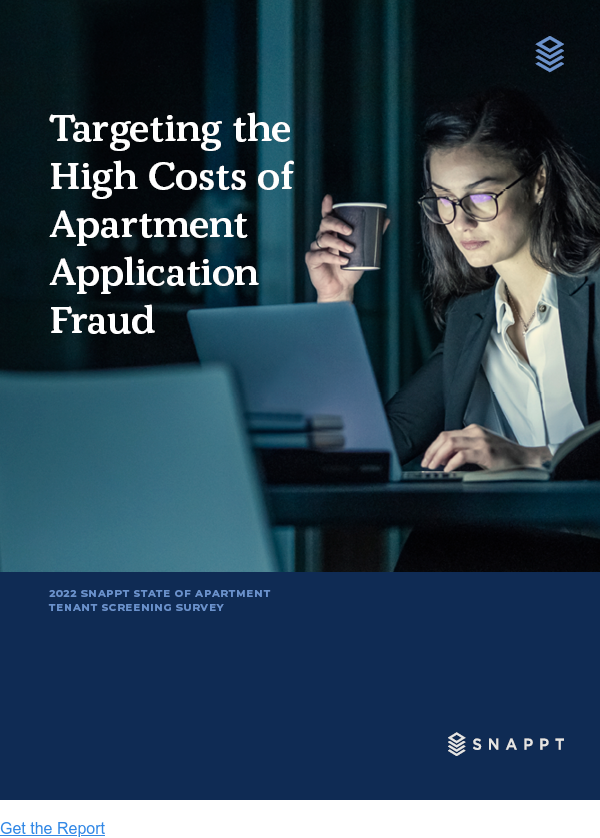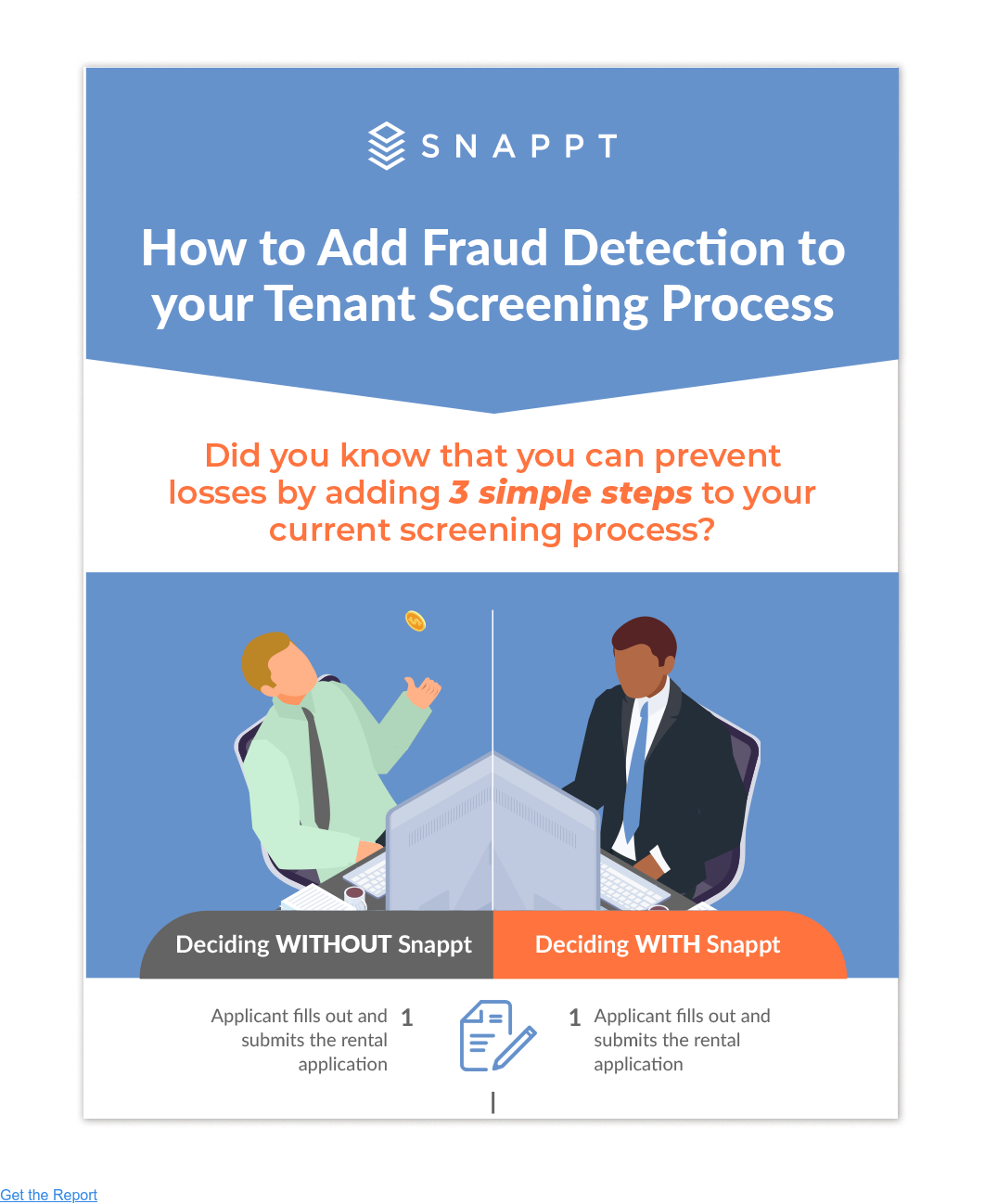Billy Joel famously sang, “Honesty is such a lonely word, everyone is so untrue,” and while he was singing about love, the sentiment holds for the landlord/renter relationship. There are many honest renters in the world, but tenant scams are a major epidemic. As such, property managers doing all they can to protect themselves from fraud is more than good business, it is essential. This process becomes even more complicated when we consider that many tenant applications contain false information. So, how can tenant fraud be spotted and removed from the beginning?
Identify and prevent tenant scams with the following tips.
-
Get proof of identity
It may sound obvious, but before running a background, criminal or credit check, ensure that you are checking on the right person. Sadly, honesty is not something that can be taken for granted. While most landlords are most concerned with avoiding financial fraud, identity fraud is rampant and will cause damage to your business if not caught ahead of time.
Once proof of identity is established, run your own reports. Never accept a printed credit report from a tenant, for example. Make it a policy to run all background and credit checks on your end to ensure authentic information.
-
Collect through an online payment portal
An online payment portal can protect you in two ways. First, it stamps out wire fraud. Victims of wire fraud are sent a fake check overpaying for rent and fees. The tenant scammer then requests that the extra funds be returned. However, in the time it takes the fraudulent check to bounce, the landlord has missed out on all the money from the check, as well as the returned funds. Waiting for a check to clear is one way to avoid this but is time prohibitive.
Secondly, online payment weeds out cash payments from applicants with bad credit. For example, an applicant may pay a deposit and rent upfront with cash, which seems ideal, but really is a sign that the tenant has bad credit, which only sets a property owner up for risk of trouble down the line. Setting up and using an online payment portal helps a tenant show that he/she has the means to pay.
-
Get savvy about falsified pay stubs and other documents
Pay stubs tell a landlord a lot about a prospective tenant, namely where they work and how much income they have, but that information is useless if the pay stubs are fake. Unfortunately, phony pay stubs are quite common. Fortunately, they can be spotted with a careful eye.
Look closely at all information on the pay stub. Note inconsistencies in the numbers, formatting, document quality and spacing. In addition, never trust a pay stub without verifying a tenant’s employment status yourself. While most employers will be unable to disclose the individual’s salary, they can verify employment.
-
Be smart about the eviction process
No property owner hopes to deal with an eviction. However, it happens. Whether due to identity fraud, financial fraud, damage to property or other reasons, no landlord is immune to a situation that requires an eviction. Eviction can be a long and expensive process, so protect yourself by taking the time to become well versed in the eviction laws in your state.
For example, a common tenant scam in eviction proceedings happens when a property owner accepts a late or partial payment after filing for eviction. Doing this may reset the entire eviction process, buying the tenant more time and costing the landlord more in time, money and disruption.
-
Protect your property and your income
Essential in protecting your property investment as well as your ongoing rental income is to be aware of the state of the rental at the time that the tenant occupies it. Thoroughly inspect and photograph the property, then conduct regular inspections, documenting any damage or issues.
A tenant may damage the property and then report the damage to the Licensing and Inspections Department, blaming the landlord for not repairing the damage. A citation is then issued to the landlord, and once that happens, the tenant can withhold rent. So, keep updated on the condition of the property, and contact previous landlords before entering into the rental contract to see if this has been a problem in the past.
By taking the time to carefully verify and vet tenants upfront, landlords can enjoy trusting relationships with their renters, as well as save time and money.
Looking for more information on types of tenant scams? See our post 14 Tenant Scams and How to Avoid Them











